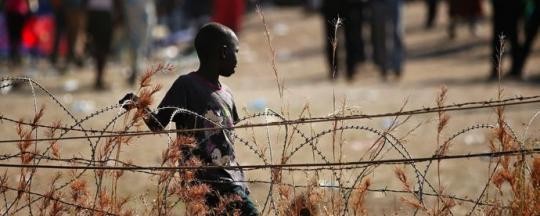Civilians sheltering in the UNMISS compound in the Jonglei state capital Bor continue to suffer from psychological problems nearly nine months after a militia massacred dozens of civilians in the base.
On April 17, 2014 an armed mob stormed the base and executed at least 47 Nuer civilians over the course of about 45 minutes.
The killings were likely ethnic targeting by Dinka youth. Parents and children were not spared in the attack. Four boys between two and eight, and seven girls between eight months and 17 were killed. One child lost both their mother and father.
“Even months later, many survivors expressed fear of future attacks, and some told Human Rights Officers that they believed their children were still traumatized by what they experienced on 17 April,” read a newly released UNMISS report.
Children who survived the massacre are easily frightened by loud noise or sudden changes, the report said, and school attendance in the site has gone down, according to teachers inside the PoC.
Parents “keep their children close so that they will not be separated in the event of another attack,” UNMISS said.
Survivors of the massacre have not had the opportunity to properly grieve, which can be an important part of overcoming mental trauma.
No relatives or friends of victims living in the base were able to attend the burial of the bodies due to security threats outside, UNMISS said. Still, only a few have ventured outside the base to visit the grave at all.
Related:
Document: UN releases details of April Bentiu massacre (11 Jan.)
Document: UN releases details of April Bor massacre (11 Jan.)




